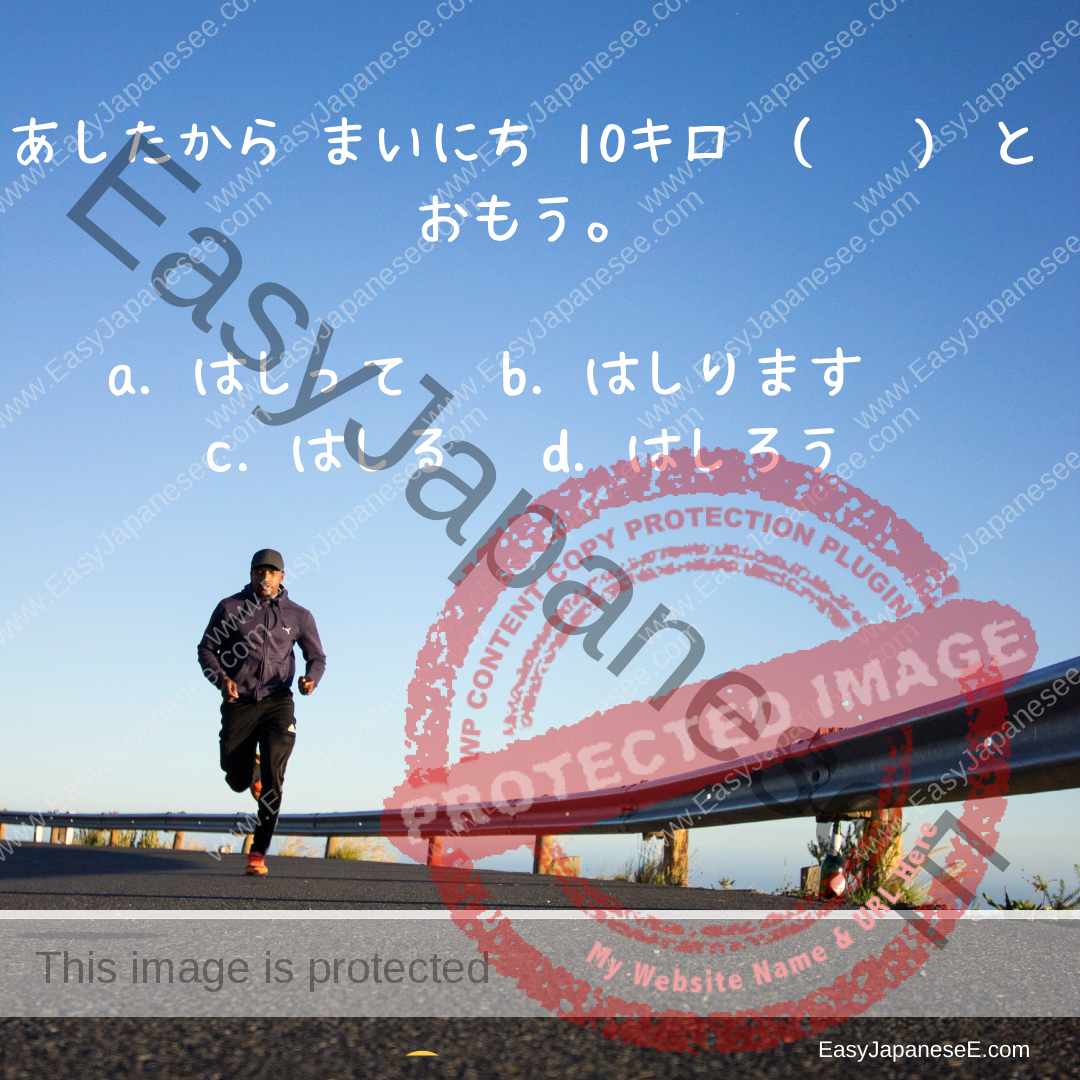
あしたから まいにち 10キロ ( ) と おもう。
Last week, I talked about the plain volitional form, meaning “let’s…” Today’s topic is a variation of that.
The direct translation of あしたから まいにち 10キロ ( ) と おもう would be: “I think that I (…run…) 10 km every day from tomorrow. In English the most likely words for the brackets would be “will run” but this “will” is not just indicating a future action but it is to show a commitment or the intention of doing so. Thus, in Japanese the correct answer is d. はしろう.
Running 10 km every day needs a certain amount of commitment, so here you cannot use just はしる, Instead, you need a verb in the volitional form to show the “will.”
It is OK to use はしる if you are talking about somebody else, i.e. たろうさんは あしたから まいにち 10キロ はしると おもう (= I think Taro will run 10 km every day from tomorrow on.) as you don’t need a commitment for Taro’s running.
[plain volitional form] と おもう is almost the same as [dictionary form] つもりだ = intend to do ~.
あしたのパーティーにいこうとおもう。
≒あしたのパーティーにいくつもりだ。
七月のJLPTしけんをうけようおもう。
≒七月のJLPTしけんをうけるつもりだ。
If you liked this article, please share it with your friends using the social media buttons below.
Also, your clicks on ads on this page help covering the cost of running this website. Your support will be much appreciated.

